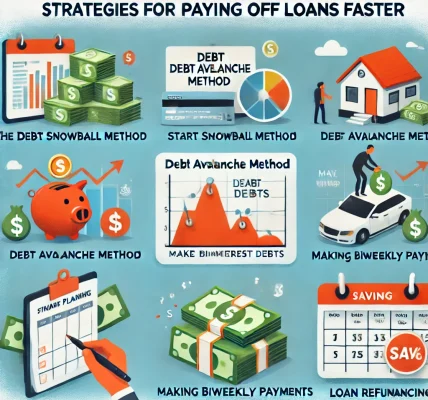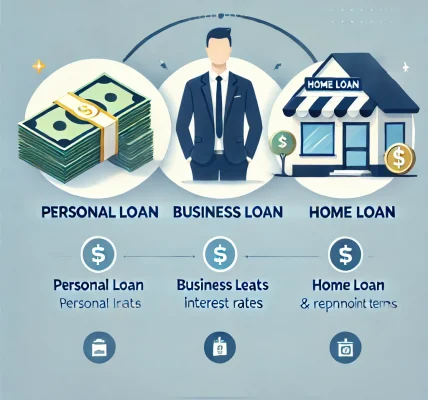Buying your first home is an exciting milestone, but it can also be an overwhelming experience, especially when it comes to financing. For first-time homebuyers, securing a mortgage can be a challenge, but government loan policies are designed to make this process easier and more accessible. In this blog, we will explore the different government loan programs available, the benefits they offer, and how you can take advantage of these policies to make homeownership a reality.
1. What Are Government Loans for First-Time Homebuyers?
Government loans for first-time homebuyers are mortgage programs backed or insured by government agencies, designed to help individuals purchase their first home. These programs often come with more favorable terms than traditional loans, including lower down payments, reduced interest rates, and more lenient qualification requirements.
In the context of investment platforms, these loans are often used by individuals looking to invest in real estate properties for rental or long-term growth. However, they are equally beneficial for anyone looking to secure their first home.
2. Popular Government Loan Programs for First-Time Homebuyers
There are several government-backed loan programs that cater specifically to first-time homebuyers. Here’s a breakdown of the most popular ones:
a) Federal Housing Administration (FHA) Loans
- Overview: FHA loans are one of the most popular options for first-time homebuyers. They are insured by the Federal Housing Administration, making them less risky for lenders and easier to qualify for.
- Key Features:
- Low Down Payment: FHA loans require as little as 3.5% down, which is significantly lower than conventional loans.
- Lenient Credit Requirements: FHA loans are accessible to borrowers with lower credit scores (usually as low as 580).
- Competitive Interest Rates: Due to the FHA’s insurance, lenders often offer competitive interest rates.
- Best For: Borrowers with less-than-perfect credit or those with limited funds for a down payment.
b) U.S. Department of Veterans Affairs (VA) Loans
- Overview: VA loans are available to current and former military service members, as well as their spouses. These loans are backed by the U.S. Department of Veterans Affairs and are designed to offer favorable terms to military families.
- Key Features:
- No Down Payment: One of the most appealing aspects of VA loans is that they do not require a down payment.
- No Private Mortgage Insurance (PMI): Unlike other loans, VA loans do not require PMI, which can significantly reduce monthly payments.
- Competitive Interest Rates: Similar to FHA loans, VA loans come with competitive interest rates.
- Best For: Veterans and active-duty service members looking to buy a home with no down payment and no PMI.
c) U.S. Department of Agriculture (USDA) Loans
- Overview: USDA loans are designed for rural and suburban homebuyers who meet certain income requirements. These loans are backed by the U.S. Department of Agriculture and are aimed at promoting homeownership in rural areas.
- Key Features:
- No Down Payment: USDA loans often do not require a down payment, making them a great option for first-time buyers.
- Lower Mortgage Insurance: The mortgage insurance on USDA loans is often lower than on other government loans.
- Income Limits: Borrowers must meet certain income requirements, which vary by location.
- Best For: First-time homebuyers looking to purchase a home in rural or suburban areas and meet the income qualifications.
d) Good Neighbor Next Door (GNND) Program
- Overview: The GNND program is a government initiative designed to help law enforcement officers, teachers, firefighters, and emergency medical technicians purchase homes in revitalization areas at a significant discount.
- Key Features:
- 50% Discount: Eligible buyers can receive a 50% discount on the list price of a home in a designated area.
- Requires Service Commitment: Buyers must commit to living in the home for at least three years.
- Best For: Teachers, police officers, firefighters, and EMTs looking to purchase a home in an area that is being revitalized.
3. Benefits of Government Loans for First-Time Homebuyers
Government-backed loan programs offer numerous advantages for first-time homebuyers. Here are some key benefits:
a) Lower Down Payments
One of the most significant challenges for first-time homebuyers is saving for a down payment. Government loans, such as FHA, VA, and USDA loans, typically require much lower down payments than conventional loans, which makes homeownership more attainable.
b) Easier Qualification
Government loans often have more lenient qualification criteria than conventional loans. This includes lower credit score requirements and more flexible debt-to-income ratios, allowing first-time homebuyers who might not qualify for traditional loans to still secure financing.
c) Competitive Interest Rates
Because these loans are backed by government agencies, they often come with lower interest rates than conventional loans. This can make a big difference in monthly payments and the total cost of the loan over time.
d) No PMI (Private Mortgage Insurance)
Some government-backed loans, such as VA loans, do not require PMI, which can add to monthly mortgage payments on traditional loans. This can result in lower overall monthly costs and more affordable homeownership.
e) Assistance Programs
Many government programs for first-time homebuyers also offer additional assistance, such as grants, tax credits, or down payment assistance programs. These can provide additional support to make the process of buying your first home more affordable.
4. How to Qualify for Government Loans
Qualifying for government loans generally depends on the specific program you are applying for. However, there are some common eligibility criteria that you should be aware of:
a) Credit Score Requirements
- FHA loans generally require a credit score of at least 580 for a 3.5% down payment.
- VA loans do not have a specific credit score requirement, but most lenders will look for a score of at least 620.
- USDA loans typically require a credit score of 640 or higher.
b) Income Limits
- USDA loans and some state programs have income limits based on the area in which the home is located. Make sure you research the specific program to determine if you qualify based on your income.
c) Property Requirements
- Government loans may have specific property requirements, such as location (for USDA loans) or the condition of the property. Some programs may only be available for homes in certain areas or those that meet specific guidelines.
d) Military Service (For VA Loans)
- VA loans are only available to active-duty military members, veterans, and eligible surviving spouses.
5. Conclusion: Take Advantage of Government Loan Policies
Government loan programs for first-time homebuyers are a valuable resource for those looking to purchase their first home. By offering low down payments, more flexible qualification requirements, and competitive interest rates, these loans make homeownership accessible to a larger pool of buyers.



